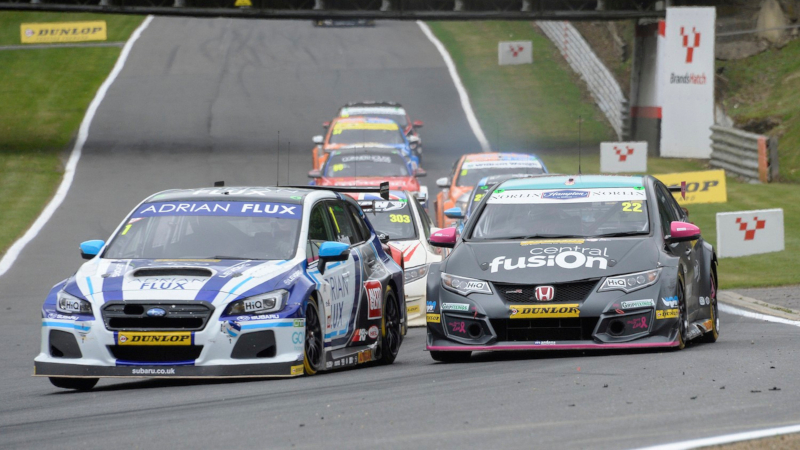TOCA, the organiser of the British Touring Car Championship, has ratified a number of minor rules changes for the 2109 season, seeing changes to the success ballast, strike penalty system amongst other areas.
At an end of season consultation with the teams involved, a number of minor amendments to the regulations were agreed.
One of the biggest changes is to the success ballast system, which will see the weight carried by a race winner or championship leader reduced to 54 kg, from 75 kg beforehand. The changes will cascade down to tenth position, with all bands of ballast being reduced, according to the following scale:
BTCC success ballast from 2019
1st: 54 kg
2nd: 48 kg
3rd: 42 kg
4th: 36 kg
5th: 30 kg
6th: 24 kg
7th: 18 kg
8th: 12 kg
9th: 6 kg
10th: 6 kg
The system of reprimands, which ultimately lead to penalties, has also been revised. From 2019, three reprimands will lead to a strike, whilst three strikes will lead to a driver being demoted to the back of the grid, as is currently the case.
However, a strike may also now be applied in the case of a more serious offence. TOCA gave as an example that a strike could be applied “when a driver is found to be wholly to blame in an incident that causes another driver to be unable to finish the race”. This type of strike would also lead to the driver receiving an additional penalty of a minimum 20 seconds added to their race time.
Further minor changes will also see the driver who causes a red flag in a qualifying session losing their fastest time up until that point and not being allowed to take any further part in the session. There are also some revisions to tyres, with Dunlop to introduce a new wet compound in 2019, although there are no changes to the Option Tyre system as previously implemented.
It was also confirmed that the introduction of hybrid power, which was originally outlined for introduction in 2022, could be brought forward to 2021 if “all key parameters relating to the supply, engineering, costs, performance and testing of the hybrid units can be achieved in good time for an earlier launch”.

